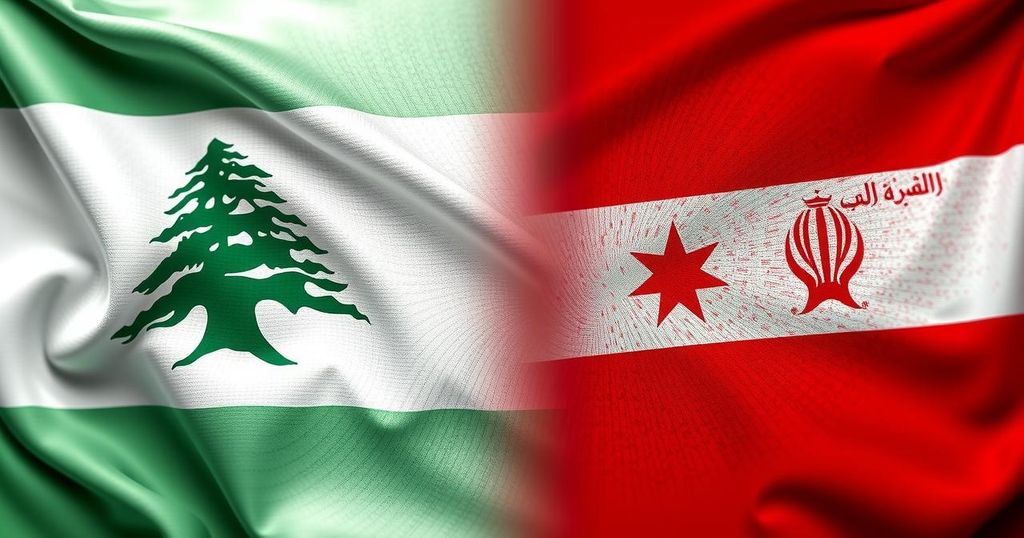Prospective Normalization: Israel, Lebanon, and the Implications of Saudi Relations

Israeli Foreign Minister Israel Katz indicated that Lebanon might recognize Israel if Saudi Arabia normalizes relations first. He cited the ongoing U.S. mediation for a peace deal with Saudi Arabia, contingent on Palestinian statehood. The conversation included the role of UNIFIL in Lebanon and its potential need for a mandate change to address Hezbollah effectively amid escalating conflict in the region.
The Israeli Foreign Minister, Israel Katz, has suggested that Lebanon may open diplomatic relations with Israel contingent upon a similar normalization of ties between Israel and Saudi Arabia. This statement was made during a discussion with Italy’s Foreign Minister, Antonio Tiani. Katz stated, “Lebanon could become part of the circle of normalization with Israel if normalization with the Kingdom of Saudi Arabia is achieved.” However, the mechanism by which this transition would occur remains unclear, especially given Lebanon’s longstanding policy of non-recognition of Israel and the technical state of war that exists between the two nations. While discussions between Israel and Saudi Arabia have been stalled due to the ongoing conflict in Gaza, the U.S. has been mediating these talks. The United States is reportedly willing to offer a security pact to Saudi Arabia in exchange for normalization with Israel. Nevertheless, Saudi Arabia has made it clear that it will not establish ties with Israel without a commitment to granting Palestinians their own state—an issue that Israel’s current government has not resolved. Tiani emphasized Italy’s position by stating that “Italy will not recognize the Palestinian state without an agreement with Israel,” underscoring the complex interrelation of the recognition issue. In the backdrop of these discussions, other countries like Spain, Ireland, Norway, and Slovenia have taken steps to recognize Palestine, reflecting a divided stance on statehood in the international community. Furthermore, Katz expressed the need for the UN peacekeeping force, UNIFIL, to play a more robust role in maintaining peace in southern Lebanon, indicating that it must adapt to effectively counter Hezbollah. This assertion follows a year marked by intensified conflict between Hezbollah and Israeli forces, culminating in recent escalations that have involved extensive cross-border hostilities. “We discussed the necessary changes to UNIFIL’s mandate to make it more effective in confronting Hezbollah,” Katz remarked. A proposed ceasefire agreement suggests amendments to UN Resolution 1701, enhancing UNIFIL’s authority, but raises concerns regarding Lebanese sovereignty in the process. The situation remains dire, with thousands of casualties reported, including civilians, spurring calls for operational changes within UNIFIL.
In the context of Middle Eastern geopolitics, any potential normalization of relations between Lebanon and Israel is closely tied to broader regional dynamics, particularly involving Saudi Arabia. Historically, Lebanon has refused to recognize Israel, and the two nations remain in a state of war since the establishment of Israel in 1948. The U.S. has been mediating normalization efforts between Israel and Saudi Arabia, which are pivotal to enhancing regional stability and addressing the longstanding Palestinian issue. Moreover, the role of UNIFIL is crucial in monitoring peace in southern Lebanon, particularly in light of escalating tensions with Hezbollah, a group supported by Iran that opposes Israel’s existence.
The remarks made by Israeli Foreign Minister Israel Katz regarding Lebanon’s potential normalization with Israel reveal the intricacies involved in Middle Eastern diplomacy. He underscored that such progress is contingent upon an agreement with Saudi Arabia, amidst a backdrop of ongoing conflict and stalled negotiations. The situation remains complex, with significant humanitarian implications and the delicate interplay of international relations being a focal point in attempts to stabilize the region.
Original Source: www.newarab.com








